Risks Associated with Investing in IPO
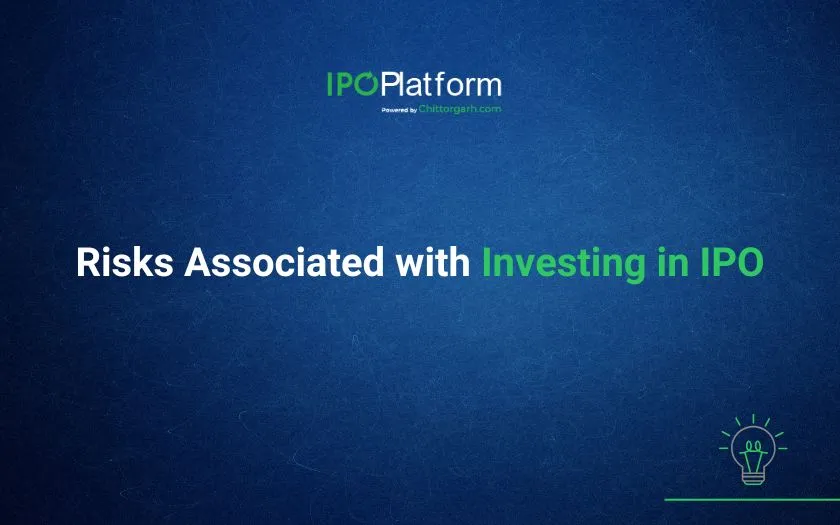
There are two types of IPO, Mainboard IPO and SME IPO. Each type of IPO is governed by a different set of eligibility guidelines for IPO. Multiple financial intermediaries are involved in an IPO, including IPO Advisors and Merchant Bankers (BRLM) which play a crucial role in IPO process.
What is an IPO (Initial Public Offer)?
IPO (Initial Public Offering) means a private company selling its shares for the first time to the public. The IPO Process is regulated by SEBI as specified in SEBI ICDR Regulations (2018). The Regulator has laid out the IPO Eligibility Criteria for companies to go public.

SME e book for IPO Eligibility Criteria
Fund- raise in primary markets through IPO enables both institutional and retail investors to invest in a growing company. By investing in an IPO, an investor can participate in the profits of an emerging and growing company.
After a successful IPO, the company gets listed on recognized stock exchanges like the NSE, BSE or SME platforms like, BSE SME platform, NSE SME platform. An IPO can give a chance to investors to fund a business early and profit from its possible expansion.
IPO is often seen as an investment opportunity for investors in a company for long term and benefit from its future growth. Many investors also apply IPO for listing gain when company gets listed on the Stock exchanges.
However, investing in IPO has its own challenges, and an investor should consider all the risks and challenges while considering to invest in IPO.
Mainboard IPO Eligibility Guidelines
How to Know If an IPO is Good or Bad to Apply?

An investor should consider the following factors before applying for any IPO. Whether to apply for IPO or not is a decision which should be taken after analyzing the below questions regarding the IPO company.
- What is the Business Model of the company?
- Who are the Merchant bankers of the IPO?
- What is the list of anchor investors in IPO?
- What does its financial history look like?
- Who are the promoters and their experience?
- What is the Valuation of the IPO? Is it fairly valued or not?
- What are the risks associated with the IPO and impact of such risks for IPO investing?
- What is the purpose of the IPO?
- How will the company use the funds raised from the public through IPO (IPO objectives)?
- How much IPO subscription is there?
- What is IPO GMP (Grey Market Premium), and track the GMP of particular IPO?
Investors can address these Queries by reading the Offer documents like Draft Red Herring Prospectus (DRHP) and Red Herring Prospectus (RHP). These documents are available on NSE, BSE or NSE Emerge or BSE SME and also available on IPO websites like ipoplatform.com. DRHP, RHP can help the investor to analyse the IPO and make informed investment decisions.
What Are Investment Risks Related to the Securities Market?
Investing in the stock market might be a rewarding option to multiply your money over time. IPO provides an investment opportunity for investors to invest in stock market. However, every investment carries risks that investors should know and understand very well. Knowing and understanding these risks is very important to make informed investment decisions. Here we will discuss the challenges of investing in IPO. List of New SME IPO
What Are the Investment Risks in IPO and Securities Market?
While IPOs and stock market investments can generate better returns, they also come with various types of risks. Here are the key risks that investors should be aware of:
-
Listing Risk
The IPO listing price is dependent on market conditions at the time of IPO and listing. Shares may either list on the stock exchange at a listing gain or at a price lower than the IPO price. Listing at a lower price leads to an immediate loss for the investor, as not all IPOs are profitable on the listing day. So an investor should be required to do in depth analysis of IPO before making investment decisions. - Overvaluation Risk
IPO Valuation determines the Issue Size of a company. The SME IPO valuation is arrived at after considering factors like current profitability, future growth prospects and business strengths and peer data. In IPO, Lead Managers usually consider P/E multiple for valuation purposes. Although, the valuation should always be at a fair value. However, higher price or overvaluation during IPO may not be beneficial for the investors in the long term. If investors see that the price is higher than it actual worth, the stock may decline after listing. - Lack of Business History
Some companies looking forward to listing in the IPO market may have a limited operational history or track record. This makes it hard for investors to evaluate how stable or profitable the business would be in the long term. An investor should thoroughly research about the company by studying its DRHP, RHP. Several IPO Reviews and IPO Analysis is available on various websites like ipoplatform.com and others. Several SEBI registered brokers also publish IPO report for current IPO. - Allotment Risk
When a company launch IPO it attracts lots of investor interest. Sometimes number of applications exceeds the number of shares which are available for allotment, not all investors get IPO allotment. The money investors applied with gets blocked immediately in the bank account of the investor. If investor don’t receive the shares, their application money will be refunded to them. However, during this period, investor lose the opportunity to use that money for other investment and financial needs. - Market Risk
Even if a company is doing well, its share price can drop due to market-wide factors like economic changes, interest rate increases, global events, or geopolitical tension. When the market conditions are not positive, companies may defer their plan to go public for some time. Investors should be well aware of the market conditions to make an informed investment decision. Explore Anchor investors in SME IPO - Promoter and Management Risk
The success of a company heavily relies on its promoters and management. If they lack experience, act unethically, it can negatively impact the company's growth and investor trust. The Management and the promoter of the company are its backbone which would directly affect the performance of the company post listing. So an investor should educate himself about the key management personnel of the IPO company. - Limited Public Information
Unlike already listed companies on the Stock Exchanges, companies planning for IPO usually shares limited financial and business information with the public. Since they don’t have a long history of disclosures, investors often have access only to the details they have provided in IPO offer document. This makes very hard to judge the company’s financial strength, growth potential or the risks involved in the IPO. - High Volatility
When a company gets listed, its share price often moves up and down sharply within a short time. This happens because demand and supply are still adjusting, and investors are looking for the company’s fair value. Such sudden price fluctuations can create uncertainty for investors. Many Investors may feel excited when prices rise quickly but may also panic and sell when prices drop. This volatility is normal in the early days of trading, but it requires patience and a long-term perspective to avoid making impulsive decisions. Explore New Mainboard IPO - Liquidity Risk
After listing, certain IPO stocks may see limited trading activity in the secondary market. In such cases, investors could face challenges in liquidating their holdings at the desired time or at a fair market price. When there are not enough buyers and sellers, it reduces trading activity. This lack of liquidity can significantly impact portfolio flexibility and heightens the overall investment risk.
How to Choose the Best IPO to Invest in?
While choosing the right IPO investment it requires research and knowledge. Here are some simple steps to follow:
- Firstly, investor must read the Red Herring Prospectus filed by the Issuer company that contains all the details regarding company.
- Read expert analysis and IPO ratings from trustworthy financial websites to understand the worth of investing in IPO.
- Understand the Issuer company’s core business and its strategy for growth in future.
- Check if the IPO price is fair based on earnings and market comparisons.
- See the lead merchant bankers—experienced bankers usually manage quality IPOs.
- See if Qualified Institutional Buyers (QIBs) are actively participating. Their involvement indicates strong demand and credibility.
- Avoid applying for IPOs based solely on social media trends or fear of missing out.
Conclusion
Investing in IPO and the securities market can be rewarding, but it is very important to remember that every investment comes with risks. While some Mainboard IPOs and SME IPOs may provide high returns, others may not. Investors should not assume that every new listing will be profitable.
Investors must take time to understand a company, analyze the IPO offer, and understand the risks and benefits before investing in IPO. A detailed IPO Review and IPO Analysis can safeguard individual and retail investors in IPO. An educated and well-informed investor is more confident and better able to protect and grow their wealth responsibly over time.
FAQs
-
What are the risks in IPO?
IPO Investment is associated with many risks. After the shares got listed, their price may fall below the issue price, which can cause losses for investors. Along with market risks, there is also the possibility that the company’s business may not perform as expected in the future, which can also affect the growth and profitability. Therefore, IPO investments should be made carefully after proper research and understanding of the company. List of upcoming SME IPO in September - What if IPO fails?
There are several risks linked with IPO investments, and these risks can negatively impact the outcome of an IPO. If the IPO does not perform well, the shares may get listed at a price lower than expected, leading to immediate losses for investors. Apart from listing risks, factors like market conditions, company performance, and industry outlook also play a role. Hence, investors are required to evaluate the IPO carefully before applying. Explore all SME IPO listed in 2025 - Can we lose money in IPO?
Yes, investors can lose money in an IPO. If the company is not performing well or if the IPO is overpriced, the shares may list at a lower price than the issue price. This can result in losses for investors right from the listing day. Market volatility, poor business fundamentals, or unfavorable industry conditions can also increase the chances of loss. Therefore, it is important to research the company carefully before investing in any IPO. Explore RTA in IPO - Are IPOs always profitable?
IPO do not always list at listing gains. Sometimes, a company may be overvalued or not fairly valued, which leads to its stock price falling after listing. In such cases, investors may face losses instead of gains. The success of an IPO depends on various factors like pricing, market conditions, and the company’s future growth potential. Hence, investing in IPOs always carries some risk. Explain Overvaluation and undervaluation in IPO - Is IPO application money refundable?
Investors can apply in IPO through ASBA process. If an investor does not receive an allotment in the IPO, the company is required to refund the full application money. As per SEBI guidelines, this refund must be processed within the prescribed timelines, usually a few days after the allotment process is completed. The refund is either credited directly to the investor’s bank account or the blocked amount is released, ensuring no loss of funds - Does IPO guarantee profits?
A company raises money through an IPO mainly to expand its business, fund new projects, or repay existing debts. However, for investors, there is no guarantee of quick returns. The company’s growth and profitability may take time, and it could be months or even years before investors see meaningful gains. IPO investments should therefore be seen as a long-term opportunity rather than a way to make instant profits. List of upcoming IPO


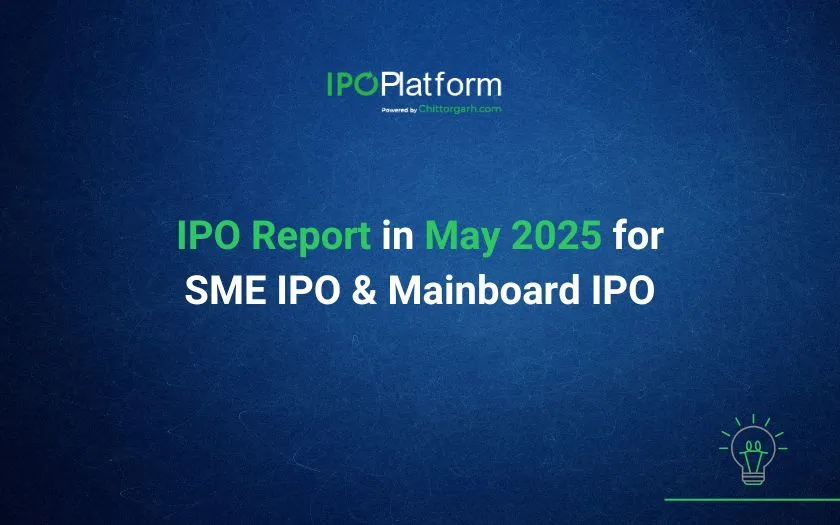
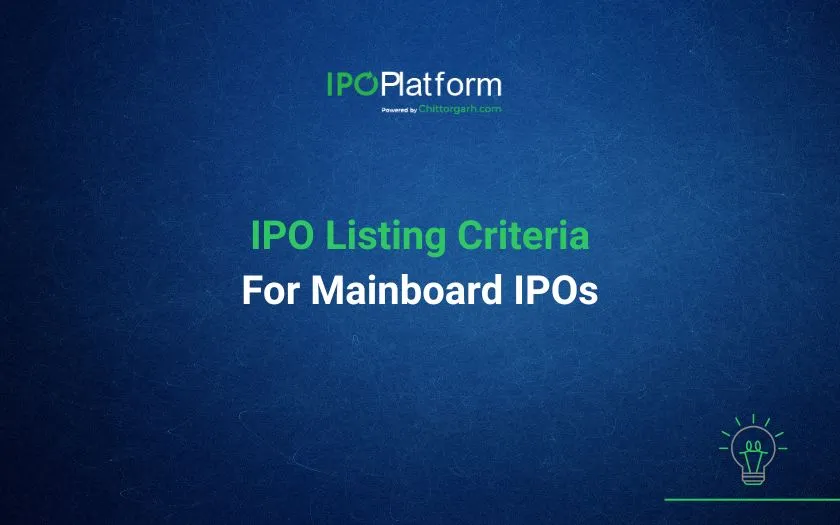
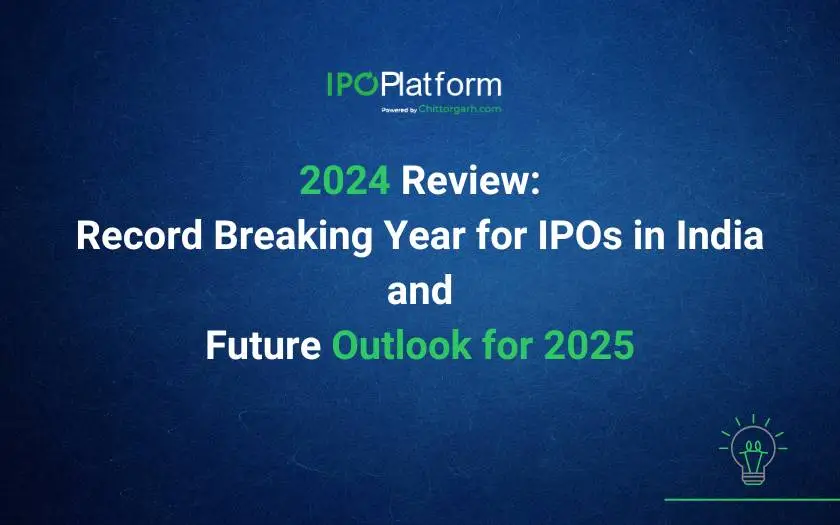
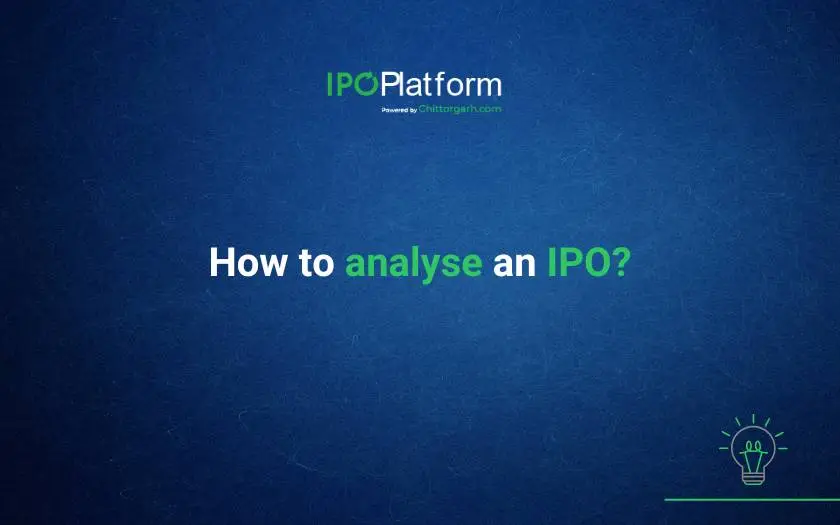
0 Comments